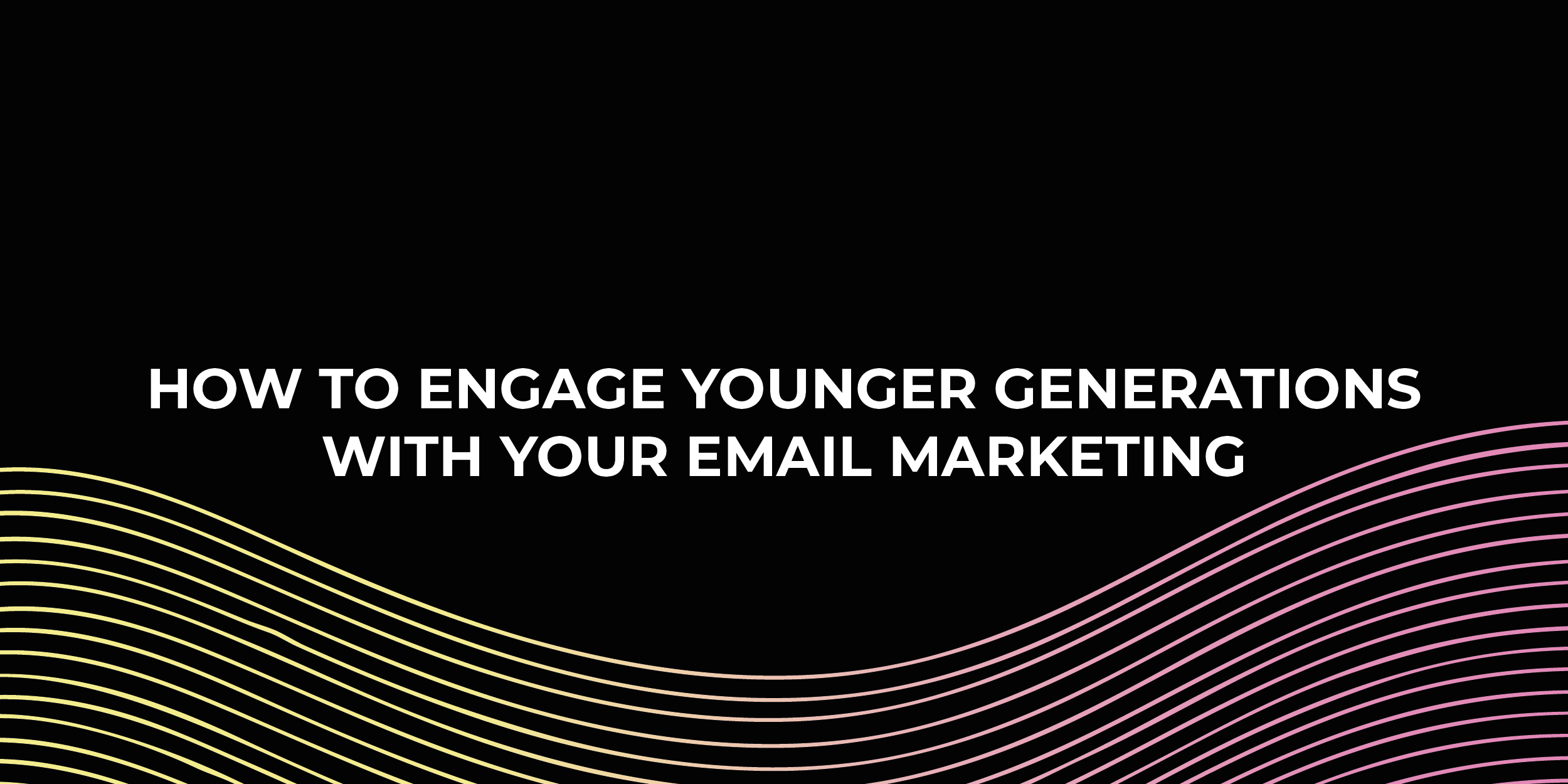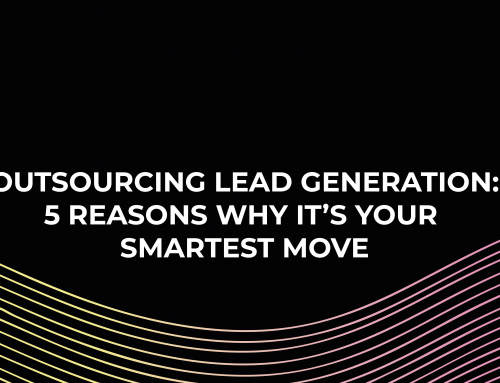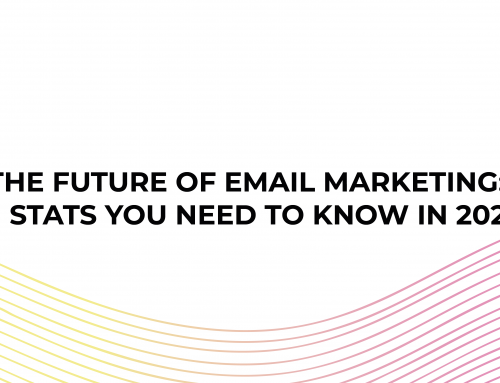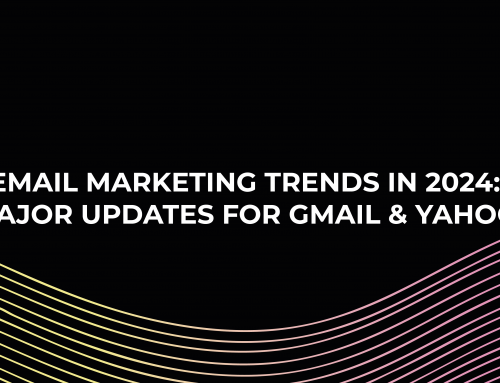How To Engage The Younger Generations With Your Email Marketing
When preparing and writing your email campaigns, a crucial factor to take into account is age; more specifically generational gaps and how different generations will perceive your communications.
Email marketing is more than just conversions and selling products, it’s about establishing and building relationships with your customers, strengthening brand knowledge and customer loyalty and tailoring your content to specific audiences is a great way to start.
In this blog we discuss various ways in which you can engage with different generations of consumer:
Understanding the Generations
For this blog we are going to be talking about 4 different generations, these are defined as:
- Baby Boomers (born between 1946-1964): Baby Boomers value personal connections and prefer straightforward, concise emails. Use a conversational tone, highlight the benefits, and emphasise credibility and trustworthiness.
- Generation X (born between 1965-1980): Generation X appreciates authenticity and individualism. Provide them with detailed information and appeal to their desire for personal growth and work-life balance.
- Millennials (born between 1981-1996): Millennials are digital natives who value convenience, personalisation, and social responsibility. Use visually appealing emails, leverage interactive elements, and incorporate user-generated content and social proof.
- Generation Z (born between 1997-2012): Gen Z is the most tech-savvy generation, with the shortest attention spans, ruined by mass media. Utilise mobile-friendly designs, leverage social media integration, and create engaging and bite-sized content that is easily shareable.
Key Traits & Characteristics of Millennials
Millennials are one of the largest generations in history in terms of population size. They have become a driving force of social change and now make up the majority of the workforce. Millennials have lived through economic downturns and rapid technological advancements making them the first generation of digital natives.
When creating your email marketing campaigns for millennials you need to remember these common generational traits, keep in mind that these may not apply for everyone within a certain age group.
1. They tend to be more educated than past generations, while some older generations may find this offensive: access to technology, higher literacy rates and a higher number of geniuses means that millennials are widely considered to be one of the cleverest generations (Second only to Gen Z)
2. They are the first generation in which men and women both occupy equal positions within the home and in the workplace. While sexism is still a very active feature of modern life, the millennial generation have seen the highest levels of equality in society.
3. Millennials care more about their health than any other generation. They prioritise their physical and mental health and are willing to spend their money on products/ services that contribute to a healthy and happy lifestyle for example gym memberships, healthy food, fitness tracking tech, therapy etc.
4. They value travel and experiences over physical objects. Experiences such as: festivals, sporting events, music concerts etc are all extremely popular.
Key Characteristics of Gen Z
Gen Z are now just starting to enter the workforce and they are bringing with them massive change. The biggest difference between Gen Z and every other generation is that they have had access to the internet and therefore all the information in existence since the day they were born. Most Gen Z’s cannot imagine a world without their smartphone, social media or online shopping. For them being out of loop or not connected is the worst possible scenario.
Some other important characteristics of Gen Z are:
1. Similar to millennials, Gen Z values authenticity highly, however they take it a step further by embracing individuality. They seek out brands that celebrate diversity, inclusivity, and personal expression and are love to champion social causes.
2. Growing up in an age of constant information overload and interactivity, Gen Z has developed shorter attention spans compared to previous generations. They prefer bite sized forms of content as opposed to long form
3. Gen Z is heavily reliant on smartphones and mobile devices for communication, entertainment, and online shopping.
How to Engage Millennials & Gen Z With Your Email Marketing
Email is one of the most effective ways for brands to communicate with millennials and Gen Z, yet many marketers still think it’s a tired and outdated channel. They couldn’t be more wrong.
Here are some techniques you can use:
Hyper Personalisation
When we say hyper personalisation we don’t just mean adding in their name at the start of your emails. Utilise all the data you have at your disposal and segment your email list into groups. As mentioned before Millennials and Gen Z not only want personalised experiences from every brand they interact with, they now fully expect it. They value their time and therefore appreciate the fact that you have data on what they like and what interests them. Click here for our blog on the Psychology Behind Personalised Marketing.
Authenticity
Businesses that can communicate their brand identity in an authentic and inclusive manner have a higher chance of resonating with Millenial and Gen Z consumers. The younger generations are known for their strong sense of social responsibility and have a great desire to leave a positive impact on the world, so being authentic, transparent and honest in your email marketing is a great way to capture their attention and draw them to your brand.
Social Proof & User Generated Content (UGC)
Millennials and Gen Z want to hear what other people have to say about your brand. Reviews and testimonials are their bread and butter so use these reviews and testimonials in your content to show that you consistently deliver on your promises. These generations prefer real stories, honest communication, and a sense of purpose. So brands that make use of user generated content and real stories are more likely to gain their trust and loyalty.
Visually Appealing Templates and Graphics.
These digital native generations don’t want to read long form content, they want bright appealing graphics and images. To capture and maintain their attention, businesses should focus on creating engaging and visually captivating content, such as videos, infographics, and interactive experiences. By using eye-catching content the younger generations are far more likely to engage with your content. They are used to things being easy and presented to them, so make your content as easy to digest as possible.
Mobile First Mindset
In 2023 emails are more likely to be opened on a mobile device rather than a computer. Therefore it is crucial to make sure you are optimising your emails for mobile devices. As both Millenials and Gen Z are so heavily reliant on smartphones and mobile devices for communication, entertainment, and online shopping. Businesses must prioritise mobile optimisation to ensure a seamless and user-friendly experience across various devices. Mobile-friendly websites, responsive design, and mobile app integration are crucial to capturing the attention and loyalty of these consumers.
Wrap Up
Understanding the key traits and characteristics of the younger generations is crucial for businesses aiming to engage and interact with them. By tailoring marketing strategies to align with these characteristics, businesses can effectively capture the attention, loyalty, and purchasing power of this influential demographic.




